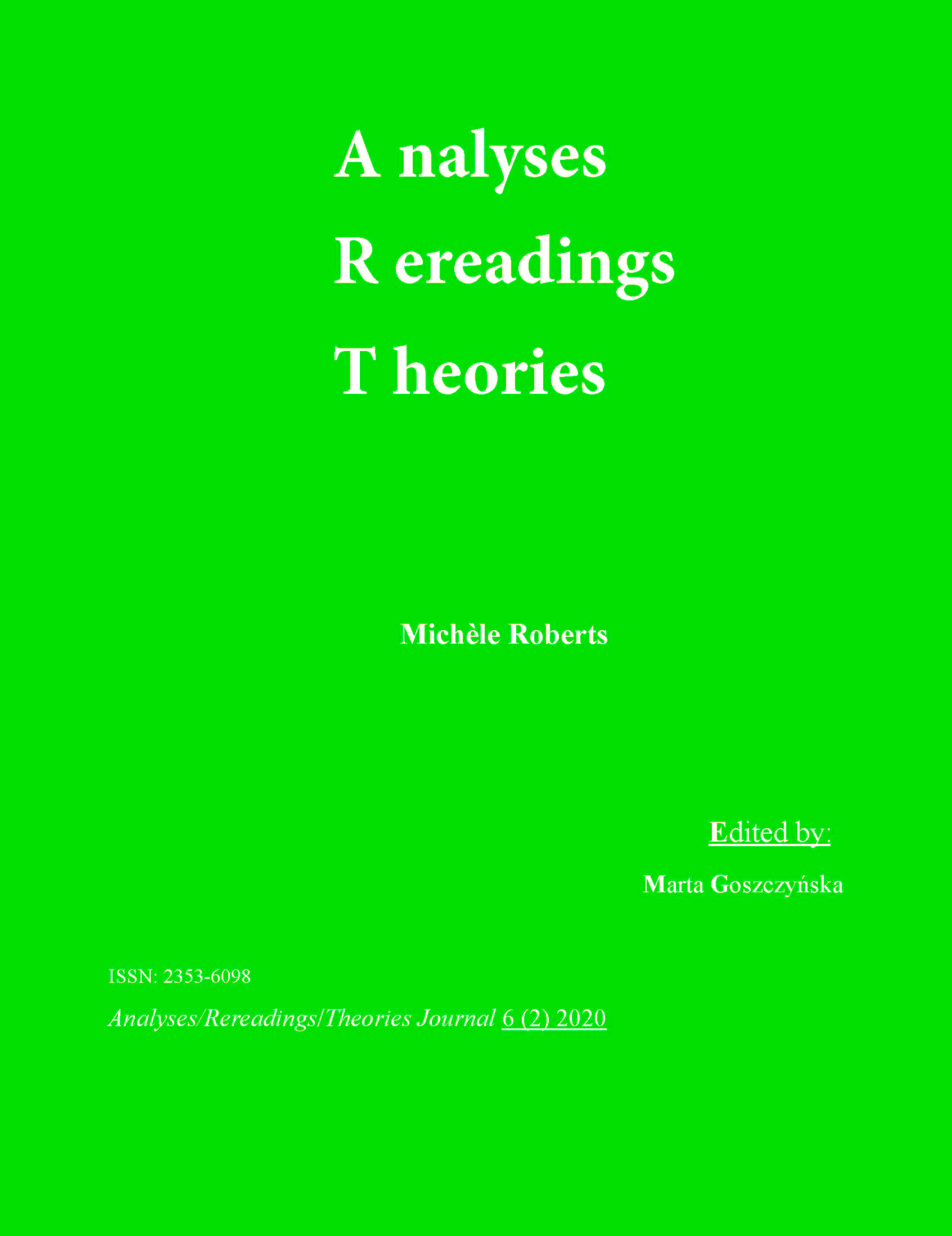Secret Rooms, Locked Doors and Hidden Stories: Retelling “Bluebeard” as a Holocaust Narrative in Michèle Roberts’s "Ignorance"
DOI:
https://doi.org/10.18778/2353-6098.6.12Keywords:
Michèle Roberts, “Bluebeard”, Maria Tatar, George Steiner, Michel Foucault, Mikhail Bakhtin, Giorgio Agamben, HolocaustAbstract
One of the most grisly European fairy tales, “Bluebeard” is also a story that has proved immensely productive, spawning numerous variants, adaptations and rewritings. This essay offers a reading of Michèle Roberts’s Ignorance (2012) as one such retelling. Roberts employs “Bluebeard” to construct a story that utilises the format of a dual coming-of-age novel but is gradually revealed as a Holocaust narrative. Set in a provincial town in Vichy France, Ignorance makes repeated use of “Bluebeard” motifs to explore the complicity of individuals in Nazi crimes against their Jewish neighbours. Featuring secret rooms, forbidden chambers, locked doors and embedded narratives, the novel tells the story of Jeanne Nérin as she comes to terms with her Jewish identity and accepts her responsibilities as a Holocaust survivor. This account is complemented by several other stories, the most important of which is that of Jeanne’s childhood companion, Marie-Angèle, whose Bildung ends in emotional and ethical failure. Fascinated with the life of bourgeois comfort and respectability, Marie-Angèle embraces what Nancy Tuana describes as “wilful ignorance,” and becomes increasingly complicit in the acts of injustice, exploitation and crime she witnesses.
References
Agamben, Giorgio. Remnants of Auschwitz: The Witness and the Archive. Trans. Daniel Heller-Roazen. New York: Zone, 1999.
Google Scholar
Bakhtin, Mikhail. Problems of Dostoevsky’s Poetics. Ed. and trans. Caryl Emerson. Intro. Wayne C. Booth. Minneapolis: U of Minnesota P, 1984.
Google Scholar
Barthes, Roland. S/Z. Trans. Richard Miller. Oxford: Blackwell, 2002.
Google Scholar
Barzilai, Shuli. Tales of Bluebeard and His Wives from Late Antiquity to Postmodern Times. London: Routledge, 2009.
Google Scholar
Carter, Angela. “The Werewolf.” The Bloody Chamber and Other Stories. London: Vintage, 2006. 126–27.
Google Scholar
Dunmore, Helen. Rev. of Ignorance, by Michèle Roberts. The Guardian, 25 May 2012. Web.
Google Scholar
Foucault, Michel. “Prison Talk.” Interview by J.J. Brochier. Trans. Colin Gordon. Power/Knowledge: Selected Interviews and Other Writings 1972–1977. Ed. Colin Gordon. New York: Pantheon, 1980. 37–55.
Google Scholar
Gerstenfeld, Manfred. “The Deep Roots of Anti-Semitism in European Society.” Jewish Political Studies Review 17.1/2 (2005): 3–46.
Google Scholar
Hagestadt, Emma. Rev. of Ignorance, by Michèle Roberts. The Independent, 8 March 2013. Web.
Google Scholar
Holland, Jessica. Rev. of Ignorance, by Michèle Roberts. The Observer, 5 May 2013. Web.
Google Scholar
Iser, Wolfgang. The Implied Reader: Patterns of Communication in Prose Fiction from Bunyan to Beckett. 1974. Baltimore: Johns Hopkins UP, 1978.
Google Scholar
Kalmar, Ivan Davidson and Derek J. Penslar. “Orientalism and the Jews: An Introduction.” Orientalism and the Jews. Ed. Ivan Davidson Kalmar and Derek J. Penslar. Waltham: Brandeis UP, 2005. xiii–xl.
Google Scholar
Laub, Dori. “Bearing Witness, or the Vicissitudes of Witnessing.” Testimony: Crises of Witnessing in Literature, Psychoanalysis, and History. Shoshana Felman and Dori Laub. New York: Routledge, 1992. 57–74.
Google Scholar
Leonard, Michael. Rev. of Ignorance, by Michèle Roberts. Curled Up with a Good Book. 2013. Web.
Google Scholar
Lewis, Philip. “Bluebeard’s Secret.” Seeing Through the Mother Goose Tales: Visual Turns in the Writings of Charles Perrault. Stanford: Stanford UP, 1996. 197–246. https://doi.org/10.1515/9780804764797
Google Scholar
DOI: https://doi.org/10.1515/9780804764797-008
Marrus, Michael R., and Robert O. Paxton. Vichy France and the Jews. 2nd ed. Stanford: Stanford UP, 2019. https://doi.org/10.1515/9781503609822
Google Scholar
DOI: https://doi.org/10.1515/9781503609822
McDowell, Lesley. Rev. of Ignorance, by Michèle Roberts. The Scotsman, 26 May 2012. Web.
Google Scholar
Parker, Emma. “Re-Envisioning Feminist Fiction.” The Cambridge Companion to British Fiction since 1945. Ed. David James. Cambridge: Cambridge UP, 2015. 79–94. https://doi.org/10.1017/CCO9781139628754.007
Google Scholar
DOI: https://doi.org/10.1017/CCO9781139628754.007
Roberts, Michèle. Ignorance. London: Bloomsbury, 2012.
Google Scholar
Steiner, George. In Bluebeard’s Castle: Some Notes towards the Re-Definition of Culture. New Haven: Yale UP, 1971.
Google Scholar
Tatar, Maria. Secrets beyond the Door: The Story of Bluebeard and His Wives. Princeton: Princeton UP, 2004.
Google Scholar
Tuana, Nancy. “The Speculum of Ignorance: The Woman’s Health Movement and Epistemology of Ignorance.” Hypatia 21.3 (2006): 1–19. https://doi.org/10.1111/j.1527-2001.2006.tb01110.x
Google Scholar
DOI: https://doi.org/10.1111/j.1527-2001.2006.tb01110.x
Published
How to Cite
Issue
Section
License

This work is licensed under a Creative Commons Attribution-NonCommercial-NoDerivatives 4.0 International License.









